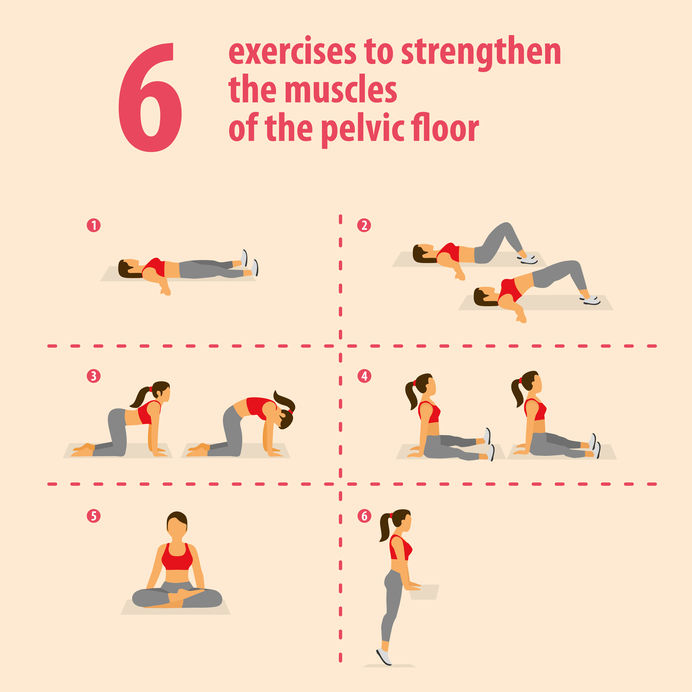Physical therapy is a common, well-respected, and effective treatment for a wide range of different ailments. The goal of physical therapy is to relieve pain, increase strength, and restore normal function to parts of the body that have been affected by injury or disease.
You’ve probably heard of or know someone who has gone through PT to treat neurological issues, recover from an injury or surgery, or improve symptoms of other mobility-limiting conditions. But did you know that you can use physical therapy to treat problems with your pelvic muscles and ligaments too? It’s called pelvic floor physical therapy, and can be used to treat many conditions that cause pain and discomfort for women and men alike.
What is pelvic floor physical therapy?
Pelvic floor physical therapy is a type of treatment used for pelvic floor dysfunction, which is an umbrella term for conditions or symptoms that impair your ability to control your pelvic floor muscles. Pelvic floor muscles support your pelvic organs, including the bladder, rectum, uterus or prostate, urethra, and vagina in women. Pelvic floor PT works to recondition the pelvic floor muscles to help improve function and strength, which then helps to alleviate pain and symptoms of pelvic floor dysfunction.
What kind of problems can pelvic floor physical therapy help with?
Pelvic floor dysfunction can be caused by many different conditions and manifest with a wide variety of different symptoms. It usually involves the pelvic muscles being too weak or too tight and overactive. If you experience any of the following chronic symptoms, you may benefit from pelvic floor physical therapy:
- Urinary issues—urgency, frequency, pain with urination, incontinence, interstitial cystitis
- Bowel issues—constipation, rectal pain, fecal incontinence, pain with bowel movements
- Reproductive system issues—pain during sex, vaginismus, endometriosis, postpartum issues, pregnancy pain, menopausal symptoms
- Pelvic pain issues—back, hip, tailbone, lower abdominal, or thigh pain, pelvic organ prolapse, pelvic asymmetry
How does pelvic floor physical therapy work?
When you see a pelvic floor physical therapist, they’ll begin by evaluating your symptoms, history, and internal and external pelvic floor muscles. Using this information, they will be able to develop a care plan to optimize your treatment. Pelvic floor PT typically uses a combination of internal and external therapeutic techniques, but your therapist will not begin any internal therapy unless and until you decide you’re ready.
External Pelvic Floor PT Techniques

A lot of pelvic floor PT work involves exercising and stretching your pelvic floor muscles. You will learn how to contract and relax your muscles, in order to help regain control, as well as breathing techniques to help with relaxation. These exercises are intended to strengthen pelvic muscles to improve flexibility and help reduce pain and dysfunction.
Deep tissue massaging of the pelvis is another way your therapist may try to stretch your muscles and improve circulation. Electrotherapy—when a low-voltage electric current is used to stimulate pelvic floor muscles—can also help increase strength and provide pain relief.
Internal Pelvic Floor PT Techniques
Once you’re comfortable, your physical therapist can also use internal techniques to help strengthen and stretch out your pelvic floor muscles. Biofeedback—when a probe is inserted into your rectum or vagina and your muscles are displayed on a screen—may be used to teach you how your muscles work and see where the issues lie, so you can better control and correct them. For those with vaginismus or other vaginal pain issues, vaginal dilators of progressing sizes can be used to learn how to relax your vaginal muscles upon penetration and help stretch tight tissue.
If you’re experiencing any symptoms of pelvic floor dysfunction, South Avenue Women’s Services can help. Our well-woman care professionals will evaluate your symptoms to provide a diagnosis and perform or recommend treatments to help, such as a referral to a pelvic floor physical therapist.
Contact us today to set up an appointment for the confidential, compassionate, and caring women’s healthcare services you need!

